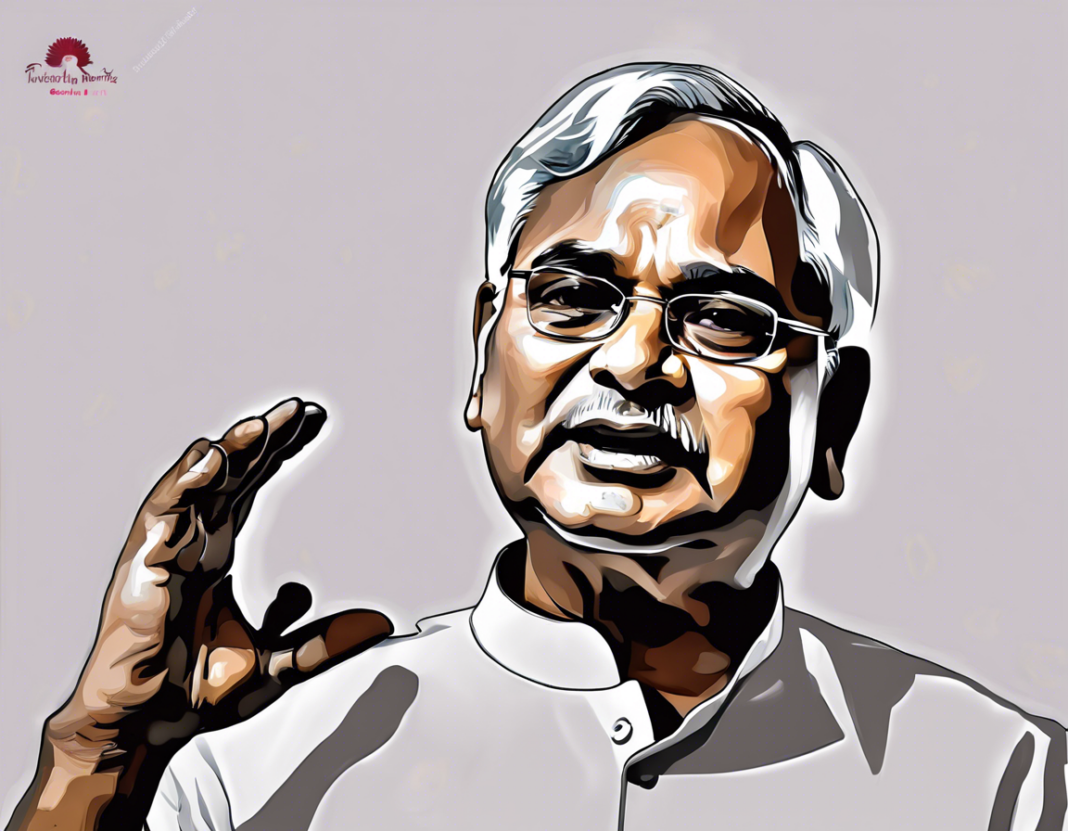In the realm of Indian politics, Nitish Kumar stands out as a prominent figure, especially in the context of his leadership in the state of Bihar. Over the years, Kumar has been instrumental in shaping the political landscape of the state, with his leadership style and decisions often sparking debates and discussions. In this article, we aim to delve into the leadership of Nitish Kumar in Bihar, analyzing his tenure, policies, challenges faced, and impact on the state’s development.
Early Life and Political Journey
Nitish Kumar was born on March 1, 1951, in Bakhtiarpur, Bihar. His foray into politics began in the early 1970s when he was actively involved in the Jayaprakash Narayan movement against the then Prime Minister, Indira Gandhi. Kumar’s political career saw him as a part of various political parties before eventually joining the Janata Dal and rising through the ranks to become the Chief Minister of Bihar in 2005.
Tenure as Chief Minister
Nitish Kumar’s tenure as the Chief Minister of Bihar has been marked by a focus on good governance, development, and social justice. His emphasis on providing basic amenities such as electricity, clean water, and infrastructure has been widely appreciated. One of his significant achievements has been the implementation of policies to boost the state’s economic growth and attract investments.
Challenges Faced
While Nitish Kumar’s leadership has brought about positive changes in Bihar, he has also faced several challenges during his tenure. One of the major issues plaguing the state has been the lack of quality education and healthcare facilities. Moreover, Bihar has grappled with problems such as poverty, unemployment, and corruption, which have posed challenges to Kumar’s administration.
Policy Initiatives
Under Nitish Kumar’s leadership, Bihar has witnessed the implementation of various policy initiatives aimed at improving the lives of its citizens. The Bihar Special Armed Police Bill, which aimed at combating organized crime, and the Bihar Start-Up Policy, designed to promote entrepreneurship in the state, are just a few examples of Kumar’s proactive approach towards governance.
Economic Development
Nitish Kumar has been instrumental in propelling Bihar towards economic development. His focus on infrastructure development, skill enhancement programs, and job creation schemes has contributed to the state’s growth. The Bihar government’s emphasis on sectors such as agriculture, manufacturing, and IT has further bolstered the economy.
Social Welfare Schemes
Kumar’s tenure has also seen the rollout of various social welfare schemes targeted at marginalized sections of society. Programs like the Mukhyamantri Kanya Suraksha Yojana, which aims to empower young girls, and the Har Ghar Nal Ka Jal scheme, providing piped water to households, have been lauded for their impact on the state’s social fabric.
Criticism and Controversies
Despite his contributions to Bihar’s development, Nitish Kumar has faced criticism and controversies during his tenure. His decision to break the alliance with the RJD and Congress and realign with the BJP in 2017 stirred political debates. Additionally, questions have been raised about the effectiveness of some of his policies and the pace of development in certain areas.
Legacy and Future Prospects
As Nitish Kumar’s tenure as Chief Minister of Bihar nears its end, discussions about his legacy and the future direction of the state intensify. His focus on good governance, infrastructure development, and social welfare schemes have left a mark on Bihar’s political landscape. The upcoming elections and the choice of his successor will shape the trajectory of Bihar’s development in the years to come.
Conclusion
In conclusion, Nitish Kumar’s leadership in Bihar has been a mix of achievements, challenges, and controversies. His tenure has witnessed significant strides in economic development, social welfare initiatives, and infrastructure upgrades. While criticisms and debates continue to surround his decisions, there is no denying the impact he has had on the state. As Bihar moves forward, the legacy of Nitish Kumar will continue to influence its political and social fabric.
FAQs
-
Q: What are some of the major achievements of Nitish Kumar as the Chief Minister of Bihar?
A: Some of Nitish Kumar’s major achievements include economic development initiatives, infrastructure upgrades, and social welfare schemes. -
Q: Has Nitish Kumar faced any major controversies during his tenure?
A: Yes, Nitish Kumar has faced controversies, particularly regarding political alliances and the effectiveness of some of his policies. -
Q: What are some of the key challenges that Bihar has faced under Nitish Kumar’s leadership?
A: Bihar has faced challenges such as poverty, unemployment, lack of quality education and healthcare, and corruption during Nitish Kumar’s tenure. -
Q: What is the legacy that Nitish Kumar is likely to leave behind in Bihar?
A: Nitish Kumar’s legacy is likely to be one of economic growth, social welfare initiatives, and a focus on good governance in Bihar. -
Q: How has Nitish Kumar contributed to Bihar’s economic development?
A: Nitish Kumar has contributed to Bihar’s economic development through policies focused on sectors like agriculture, manufacturing, and IT, as well as initiatives for job creation and skill enhancement.

